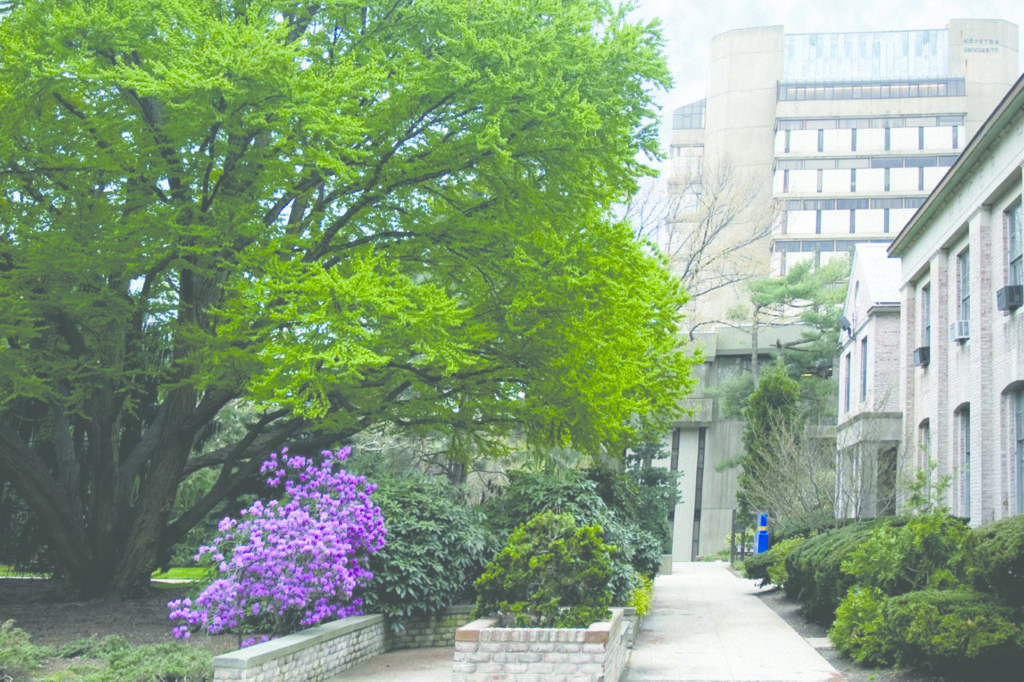
(Photo source: Flickr)
In the collective effort to “flatten the curve” and slow the proliferation of COVID-19, responsibility has fallen on all Americans to protect the most vulnerable and stay at home whenever possible—regardless of location, age or lifestyle. This change has been likened to pressing “pause” on the flow of everyday life, but it brings uncertainty rather than any sense of rest or calm.
The angst has extended to young people entering the most independent years of their lives, too.
As a college student, a sense of routine is often rare due to living away from home for large portions of the year, working with multiple class schedules and instructors throughout the week, as well as the simple fact of preparing for an uncertain adulthood. The coronavirus pandemic has accentuated and exacerbated the chaos and confusion of this phase of life for many, especially for those studying on Long Island.
Freshman or senior, at a private or public university, living on-campus or off-campus, from in-state or out-of-state—all college students have faced unique challenges throughout the past few weeks.
At Hofstra University, the experience of watching the crisis progress from what some students wryly called a “two-week spring break” to a semester and way of life put indefinitely on hold can only be described as surreal. Residential students had little choice but to rushedly move out of their dormitories. Many students who were already at home or traveling for spring break, including those in other states and countries, were forced to find a way to quickly come back to campus to get their things or ask friends to do it for them.
Because the outbreak has been especially bad on Long Island, many students were discouraged from going back at all. Hailey Roosa, a senior at Hofstra University from Woodbury, CT, faced this dilemma. Although Roosa lives off-campus during the school year and can keep her things there, being unable to go back has still left her at a disadvantage.
“As someone who went home early, thinking it was just for the weekend, I’ve now been stuck in Connecticut and haven’t been able to get any clothes, any materials for school, any supplies that I need for classes like painting and yoga,” Roosa said. “They’re all stuck at school and I basically can’t go back. I have to manage with the materials that I have, and obviously [my professors] can’t infract me for it. But it’s very difficult to try to learn without the proper materials and the proper education in terms of communicating in person with teachers.”
Across the board, the introduction of online classes has been particularly difficult for students. Each professor is essentially able to choose how they want to move forward with the semester, so students must keep track of the different methods of communication required by different classes. For students in different time zones and less structured home environments, the adjustment to distance learning is especially difficult. The challenge is made no easier by professors who are equally inept with the technology they must begin to use.
The changes that have come in recent weeks have taken a palpable emotional toll on seniors expecting to graduate in May. Discussing Roosa’s own feelings on the possibility of a canceled or virtual commencement ceremony, she struggled to hold back tears.
“I know that for me and a lot of the people that are graduating, it’s really difficult to get through your day without having a moment of crying,” she explained. “It is so, so disheartening that I won’t be able to walk across the stage or see the people that I’ve been with for four years really ever again.
“It’s really hard because everybody’s already depressed while in quarantine. But on top of that, we’re mourning something that was so important to us: our education, our friends, our loved ones, who we won’t be able to communicate with in person, either for a while or forever.”






























